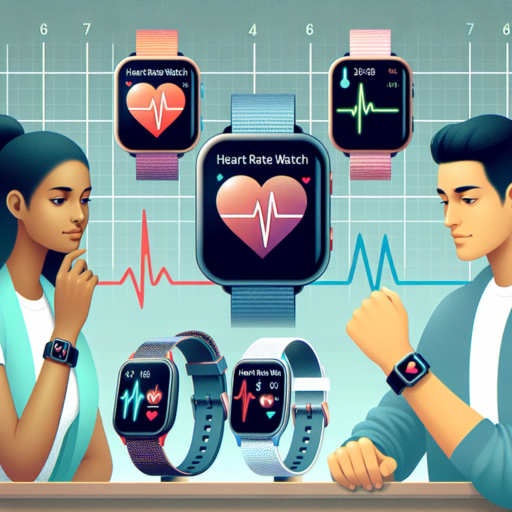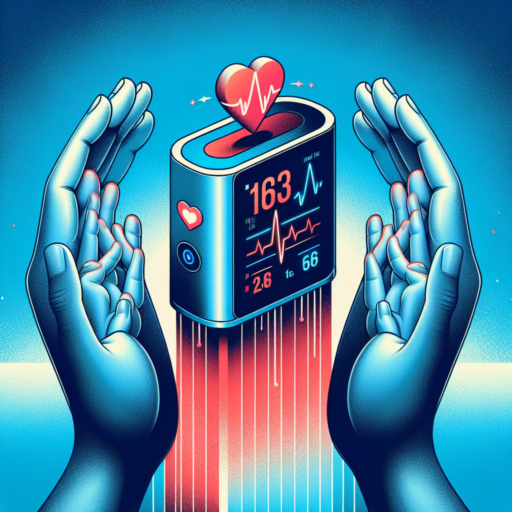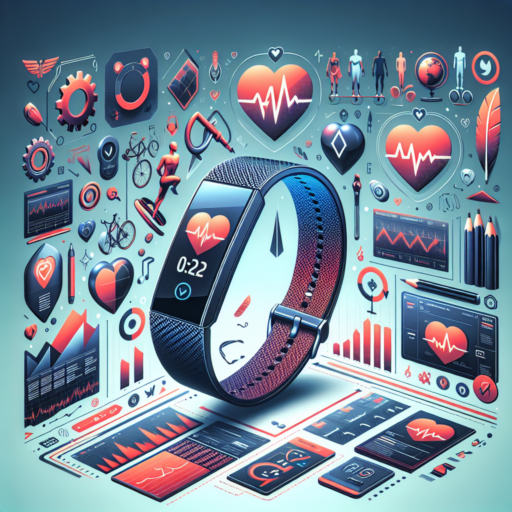Which watch is most accurate for heart rate?
When it comes to monitoring heart rate, not all watches are created equal. The quest for the most accurate heart rate watch has become a pivotal concern for both fitness enthusiasts and individuals seeking to monitor their health closely. With advancements in technology, several brands have stepped up, claiming to offer superior heart rate monitoring capabilities.
The accuracy of a heart rate watch largely depends on the technology it employs. Watches that utilize optical heart rate sensors are among the most popular. These devices measure the blood flow through the wrist using light beams, which are then translated into heart rate readings. However, for those seeking even greater accuracy, watches that can be paired with chest strap monitors are often recommended. Although slightly less convenient, these devices measure the electrical signals directly from the heart, providing a clearer and more precise reading.
In the realm of wearable technology, certain brands consistently stand out for their heart rate monitoring precision. Apple Watch Series, Garmin, and Fitbit are frequently cited for their reliability and advanced sensor technology. Each of these brands has developed unique algorithms to interpret heart rate data, ensuring that users receive the most accurate information possible. While Apple excels in seamless integration and user experience, Garmin is favored by the sports and outdoor enthusiasts for its robustness and precision. Meanwhile, Fitbit’s strength lies in its comprehensive health tracking ecosystem, appealing to a broad user base interested in overall well-being.
What watch do cardiologists recommend?
When considering what watch cardiologists recommend, it’s essential to focus on features that benefit heart health monitoring. Cardiologists often suggest watches that offer comprehensive tracking capabilities, including heart rate monitoring, ECG functionality, and detection for irregular heart rhythms, such as atrial fibrillation (AFib). These advanced features provide valuable insights into heart health, making certain watches stand out in the medical community.
Among the models frequently recommended, watches that integrate seamlessly with health-focused apps and systems take precedence. This integration allows for continuous monitoring and easy sharing of data with healthcare providers, enhancing patient care and follow-up. While numerous brands offer health-centric watches, those with clinically validated sensors and algorithms receive the highest praise from cardiologists for their accuracy and reliability.
Furthermore, watches that tout a long battery life and water resistance ensure that heart monitoring can be done continuously, without frequent interruptions for charging or concerns about damage from moisture. This continuity is crucial for gathering comprehensive data over time, which can aid in early detection of potential heart issues and overall cardiovascular health monitoring.
How accurate is the heart rate on a smart watch?
The accuracy of the heart rate measurement on a smartwatch can vary significantly across different models and brands. Generally, smartwatches use optical heart rate monitors that rely on LEDs to track blood flow through the wrist. While advancements in technology have improved their precision, factors such as skin tone, wrist placement, and motion can still impact the accuracy of readings.
Studies have shown that heart rate readings from smartwatches can be impressively accurate during rest periods but may become less reliable during intense physical activity. This is because vigorous movement can disrupt the sensor’s ability to maintain consistent contact with the skin, leading to potential misreadings. For individuals relying on smartwatches for critical heart rate monitoring, this variation highlights the importance of using these devices as supplementary tools rather than definitive medical instruments.
The context in which a smartwatch is used also plays a crucial role in the accuracy of heart rate data. For instance, environmental factors such as temperature and humidity can affect the performance of optical sensors. Furthermore, the specific design and algorithmic accuracy of the heart rate monitor within each device make a significant difference. Manufacturers continuously update their firmware and algorithms to enhance accuracy, making it beneficial for users to keep their devices updated to the latest software version.
Do heart rate monitor watches really work?
Heart rate monitor watches have become a staple in the fitness and wellness industry, offering users a way to track their heart rates in real-time. But the question remains: Do these devices really work? The short answer is yes, heart rate monitor watches can provide accurate and valuable insights into your cardiovascular health and fitness levels. These devices use either optical heart rate sensors or chest straps to measure the pulse, each with its own level of accuracy and suitability for different types of users.
Optical heart rate sensors, found in most wrist-based heart rate monitors, work by using LED lights to measure the blood flow through the skin. This non-invasive method has been vastly improved over the years, making these watches reliable for everyday monitoring and moderate exercise. However, it’s important to note that their accuracy can be affected by factors such as the device’s position on the wrist, skin tone, and the level of physical activity.
On the other hand, heart rate monitors that use chest straps are often considered the gold standard for heart rate measurement. These devices measure electrical signals directly from the heart, offering a higher level of accuracy, especially during high-intensity workouts. Users who require precision, such as athletes and fitness enthusiasts, may prefer this type of heart rate monitor. Yet, the inconvenience of wearing a chest strap may not appeal to everyone.










